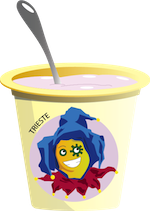Team:Trieste/parts/1
From 2012.igem.org
(Difference between revisions)
Samarisara (Talk | contribs) |
|||
| Line 23: | Line 23: | ||
<h2>Results</h2> | <h2>Results</h2> | ||
To test this promoter we performed two different assays. | To test this promoter we performed two different assays. | ||
| - | First of all we cloned this promoter in pSB1C3 and then we inserted | + | First of all we cloned this promoter in pSB1C3 and then we inserted the GFP BBa_I13504 downstream from it. In the same plasmid we cloned J23100-CymR-B0015 in order to repress the promoter. To test this system we used different concentrations of cumate which binds CymR preventing its repression, thus allowing the GFP expression. |
<br/> | <br/> | ||
<br/> | <br/> | ||
Revision as of 10:13, 26 September 2012
BBa_K875001
More
Description
This promoter is composed by phage T5 promoter and Cumate operator. It is repressed in the presence of CymR protein which binds the Cumate Operator.
Assembly
Obtained by synthesis
Results
To test this promoter we performed two different assays. First of all we cloned this promoter in pSB1C3 and then we inserted the GFP BBa_I13504 downstream from it. In the same plasmid we cloned J23100-CymR-B0015 in order to repress the promoter. To test this system we used different concentrations of cumate which binds CymR preventing its repression, thus allowing the GFP expression.In liquid assay:
We inoculated a 20ml culture. After overnight growth, we diluted the culture to OD600 = 0.2. Then we aliquoted 200 μl in 8 replicates in a microtiter plate at different concentrations of cumate. The reading was performed in a monochromator at 485-510nm.

In the plate assay:
We streaked the culture on LB plates containing different cumate concentrations

Looking forward
To complete our project the T5 cumate operator will be cloned upstream both of the sequence of Cathelicidin LL-37 and of T4 Holin. The complex of T5 operator-Holin-T5 operator-LL37 is going to be used to control the bacterial proliferation and most important to avoid the horizontal transfer. It will eliminate this risk of transfer by the separation of the gene producing the repressor (CymR) and the two genes repressed. Therefore we will clone a double copy of the CYMR in the genome and in the plasmid the T5 operator-Holin-T5 operator-LL37. If horizontal transfer occurs the bacterium that receives the plasmid is going to die because of the lack of repressor.Moreover this operator can be used usefully in all the systems that requires a very stringent regulation.
Link to the Registry







 "
"









